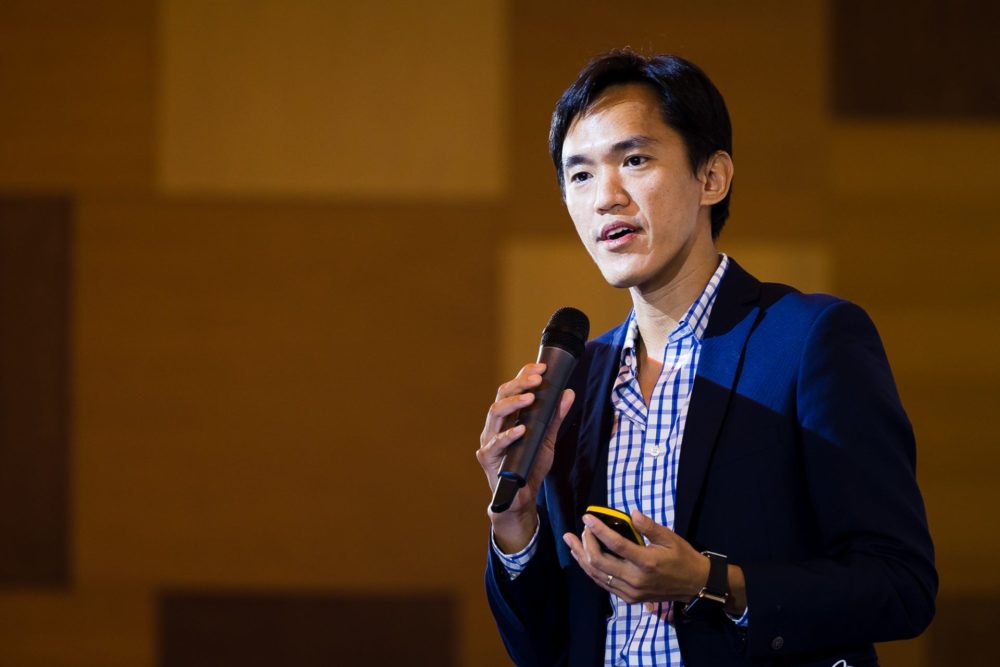One of the world’s leading manufacturers of noodles — and a major supplier of starches to the wider food industry — is launching a VC fund to advance agrifoodtech innovation in Southeast Asia.
Ho Ren Hua, CEO at Thai Wah, announced the launch of Thai Wah Ventures on stage at last week’s Asia-Pacific Agri-Food Innovation Summit in Singapore.
“As a medium-sized player with scale across the region [and] the ability and potential to partner startups across various dimensions of ag and food, we think this is very [promising],” Ho told delegates.
Thai Wah Ventures will invest in startups across four focus areas: farm and ag innovation; B2B supply chain and analytics; bioplastics and waste-upcycling; and novel ingredients and new processing technologies.
“The mission is really to grow the next generation of Tindle, the next generation of Growthwell,” Ho said, referring to two recognized Southeast Asian startup alt-protein brands that have raised significant funding of late.
“And in our space, the B2B space, [the objective is] to really be a catalyst for change with the operating capability, the expertise, the R&D, and the distribution that Thai Wah has.”
Ho said the Bangkok-based company is Southeast Asia’s leading producer of non-wheaten noodles, as well as a top supplier of tapioca — a starch derived from the cassava plant — in 15 countries worldwide.
Its customers include Cargill, Ajinomoto, Unilever, Nestlé, and the aforementioned Growthwell.
Here’s how one of Asia’s biggest noodle makers is turning to tech – read more here
Explaining the impetus behind the establishment of Thai Wah Ventures, Ho referenced the Covid-19 crisis and its impact on both the farmers that Thai Wah works with, and the customers it sells to.
“For many companies, partners, customers, the last 18 to 20 months have been very, very tough,” he said. “For [Thai Wah], the last 18 months have been a period where, on the one hand, we had to keep the business growing; but on the other, we also needed to take stock, to continuously drive innovation and drive ag development across the ecosystems and regions we work in.”
On the ingredients side of the business, this has involved the bringing “together of different multi-crop expertise in developing different food solutions,” diversifying from its commanding position in tapioca to exploring new solutions in mung bean, rice flour, glutinous rice flour, and various types of fibers, Ho said.
“When you blend with different starches, for example potato and pea, or tapioca and pea, the B2B innovation is tremendously important,” he continued, pointing to the “new applications” of these starch and fiber combinations in areas such as alt-protein.
“Our role to play is [that] we are fully developing that value chain, from farm to shelf.”
Soil health and regenerative ag
Thai Wah is also working with its farmer partners on new crop varieties and applications, Ho said.
“A lot of the heart and sweat [of innovation] doesn’t happen in the boardroom – it happens in the field, with the farmers, day-by-day, trialling use cases.” Therefore, much of Thai Wah’s innovation strategy revolves around “bridging crop science and farmer knowhow,” he said.
Beyond food and ingredients, this is also the case when it comes to technologies that can directly assist farmers.
“To me it’s fantastic: we’ve only just scratched the surface in terms of understanding carbon sequestration in soil, we’ve just scratched the surface understanding different types of soil compounds in different regions, and different organic matter and different pH,” Ho said.
In Southeast Asia, Thai Wah is “devoting a lot of time to [understand] how to apply biotechnology to that, to drive productivity,” he added.
One example of this is Thai Wah’s development of its own biofertilizer, which it has tested out with its farmer partners. The fertilizer is produced from the pulp which is a byproduct of the company’s manufacturing processes, with the addition of wastewater sludge.
Betting on bioplastics
Ho also highlighted how collaborations with third parties are helping to boost Thai Wah’s credentials as an agrifoodtech evangelist.
The company has partnered with an unnamed “regional startup” to deploy imaging technology in order to provide yield forecasting and price predictions for its cassava farmers.
It has also launched a new business focused on biomaterials, developing “the first tapioca-based plastics at scale,” Ho said.
Thai Wah is aiming to produce 3,000 to 4,000 tons of tapioca-based bioplastics per year, which can be compounded with other biopolymers to create materials for different use cases.
The technology to do this “didn’t exist in Asia,” so Thai Wah partnered with a European company with the required capabilities, Ho explained.
“Given tapioca-cassava is one of three or four top crops in this part of the world […] developing a bioplastic solution that can help close the circle […] is opening up a whole new horizon for Thai Wah in the decades to come,” he said.





